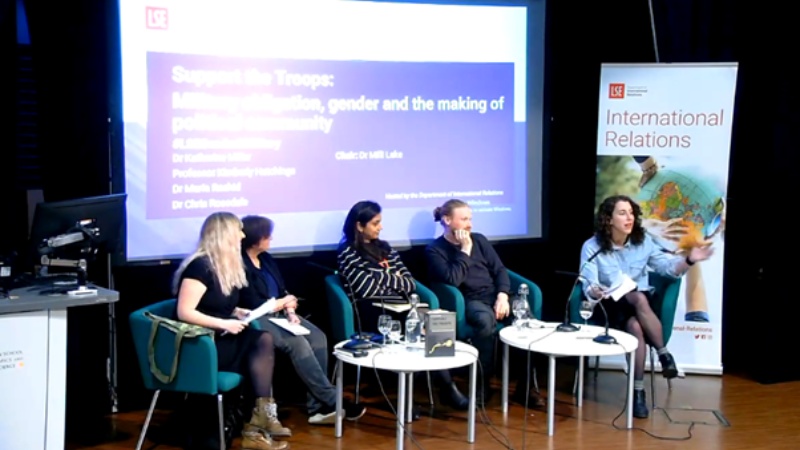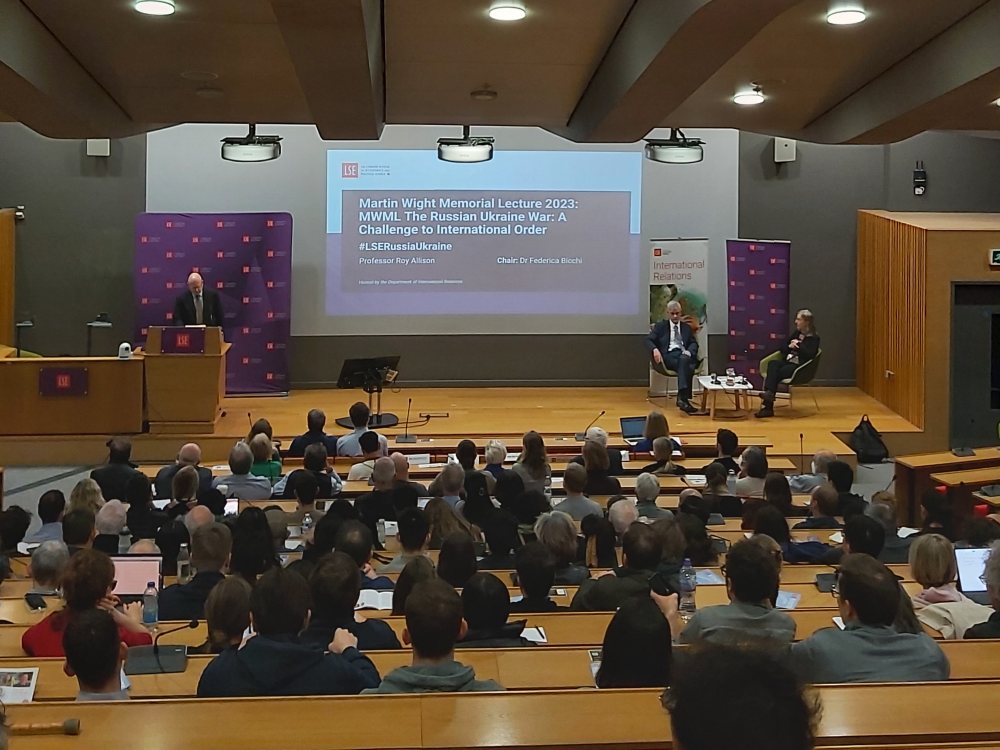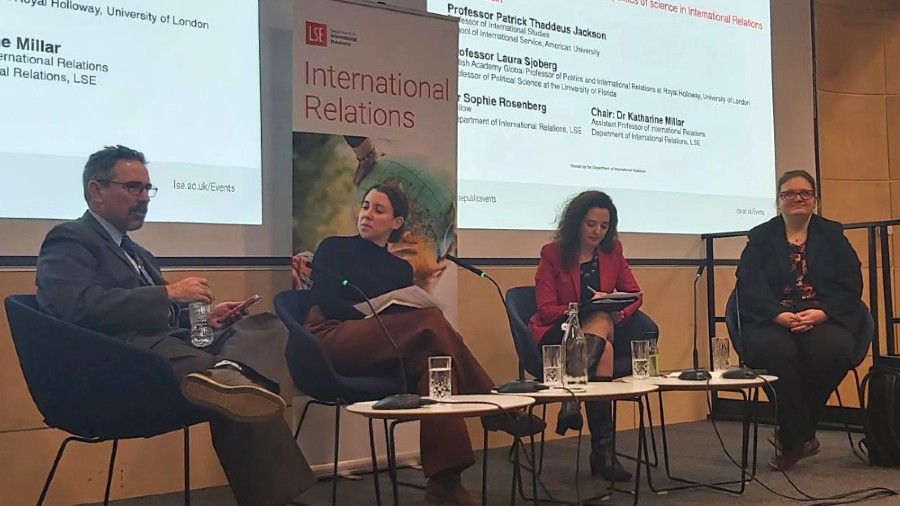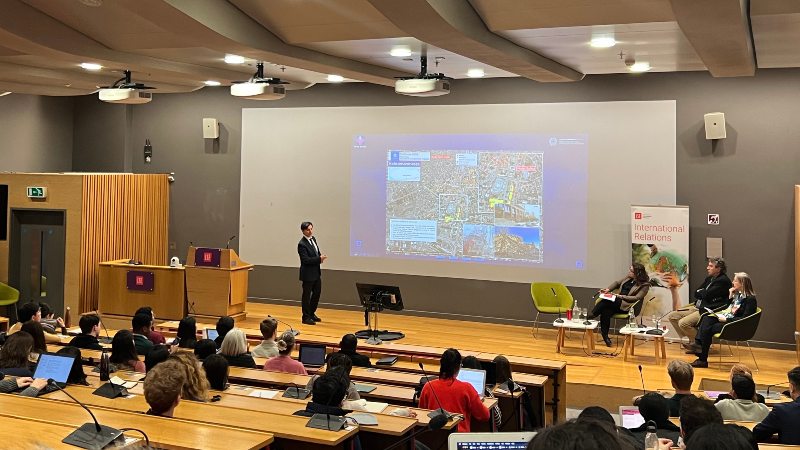On Tuesday 28 March 2023, Dan Stone, Professor of Modern History and Director of the Holocaust Research Institute (Royal Holloway, University of London) joined us to discuss his new book The Holocaust: An Unfinished History with Jens Meierhenrich, Professor of International Relations at LSE. The event focussed on the importance of understanding the true history of the Holocaust in our world today.
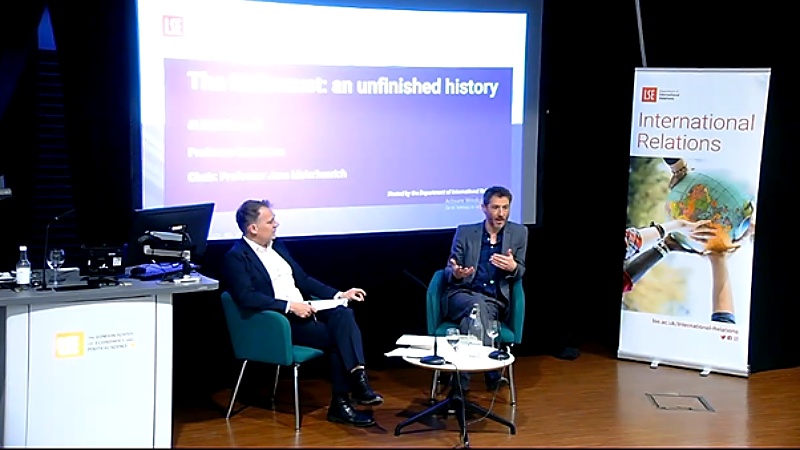
L to R: Jens Meierhenrich (Chair), Dan Stone
Stone began the talk by emphasising that “all history is contemporary history” and “the questions we ask are shaped by the age in which we live”, stating that the Holocaust was not a one-time event, but an ongoing historical process whose effects are still prevalent.
Professor Meierhenrich questioned Professor Stone on his statement, “unlearning the holocaust is no less important than learning about it” and its significance for this generation. Stone answered this question by positing that “historiography is out of kilter.” He detailed that the majority of us believe that the Holocaust is a story that solely concerned Germans and Jews because of the fame of stories such as Anne Frank’s, however, the reality is very different.
Unlearning the holocaust is no less important than learning about it.
As a spectator to the conversation, the argument made here was persuasive in its emphasis on “getting things straight”. There exists myth-making that pervades the superficial ways and narratives under which we discuss the Holocaust. Audience questions on Professor Stone’s writing process brought about a discussion regarding his experience in wanting to pull out a more complicated narrative than the one that we have become used to. One that stresses collaboration across Europe, and an understanding of the Holocaust as a global event, but does not lose sight of the Nazis as Germans and main perpetrators. A narrative that asks us to think about the neglected aspects of the Holocaust.
Professor Stone’s discussion with Professor Meierhenrich gave rise to a stimulating conversation on the importance of a holistic interpretation of the Holocaust and other genocides. By rethinking the endings and beginnings of genocides, we can have a more comprehensive understanding of the ramification of these events and how to address them in the future.
Event report by Rhea Shrivastava, BSc International Relations



